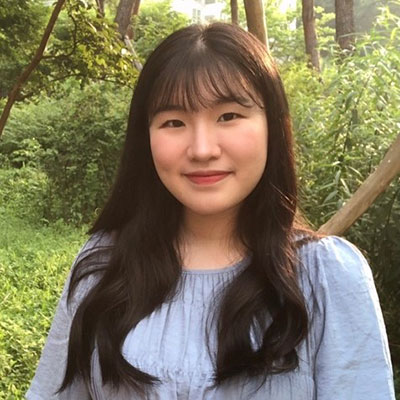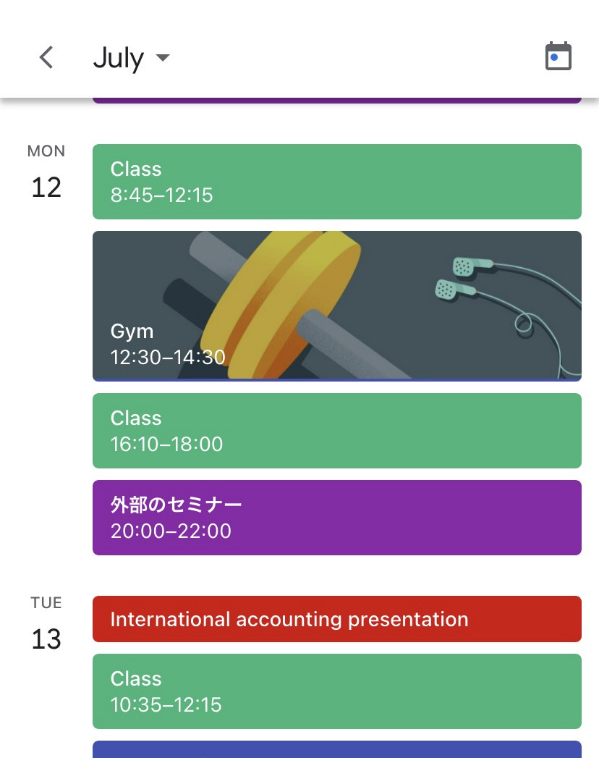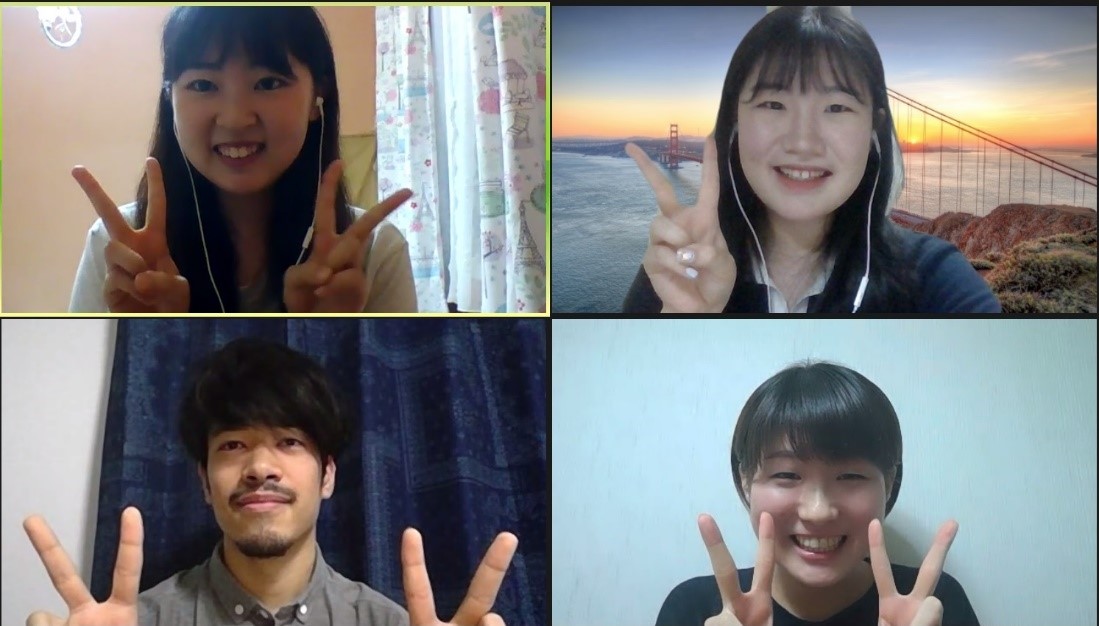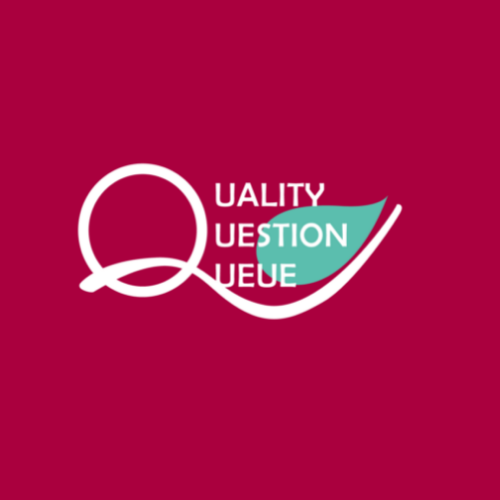Q: Why do you think you are able to maintain such high grades? (Eunkyoung)
Martin:There are three main reasons, the first being that I believe that the main purpose of going to university is to study. Secondly, I would like to go on to graduate school after I graduate from university. To do so, I need to maintain a high GPA, so that is one of my goals. The last reason is curiosity. In everything if there is curiosity then it will not be troublesome, and I believe that the same is true for studying. I know that some students try to take easy classes, but I try to avoid that strategy and give top priority to the classes that I am interested in.
Kinoshita:To create a situation in which I can freely choose such an option in the future I think it is better to have as high a GPA as possible, so that is one of my goals. In each subject even if there is something that I am interested in there are contents that I don’t find interesting. In those cases, I try to make sense of it in my own way. I am studying finance-related topics, and while I am interested in corporate finance, I am not so interested in the accounting field. However, by imagining how studying this field will help me in my field of interest, I can maintain my motivation even when I am not interested in the topic, and I try to have a minimum level of knowledge even in fields that I am not interested in.
Q: How do you keep yourself motivated to study? (Eunkyoung)
Martin:I think it's about having a clear purpose and goal in mind. I think that the point of being in university is to make sure that you are doing everything you can, including studying, researching, and writing papers. When I look back at my junior high and high school years, I only studied the minimum amount necessary and my grades weren’t high either. I think the reason for the difference is that I didn’t see the significance of studying in the past, and I wanted to have fun more than study. Therefore, I think we need to have a clear purpose and goal to keep us motivated.
Kinoshita:My motivation is the same as that. Studying is just a means to an end, but when you imagine who you would like to become and have a career vision for the future, you will naturally acquire the attitude to study and continue to do so.
Q: How do you usually manage your time? (Eunkyoung)
Kinoshita:Personally, I use Google Calendar as a way to manage my time, and I put everything, including my class times, into it. What I am conscious of when it comes to time management is prioritization. I sometimes have online part-time jobs, outside community activities, and two or three other activities outside of class, so I always try to divide my time between them. Also, when I have a set class time and a set activity time, such as this community on Monday and another community on Tuesday, I try not to break the routine.
Schedule management with Google Calendar (Kinoshita)
【Part 3: Q & A about Career Paths and the Future】
Q: How did you decide on your major? (Eunkyoung)
Martin:When I entered APU, I was thinking of majoring in Culture, Society, and Media, but I found geography, a subject which I had hardly any interest in before, to be very interesting after I took a class with Professor Koyama, and so I became interested in the Environment and Development field. Sociology is interesting, but I couldn’t find the answer when I thought of how I would personally utilize it in the future. Therefore, I opted to study the current trends of environment and development in depth. I also wanted to study abroad to learn the approaches to environmental studies not available at APU, and so I decided to major in Environment and Development.
Kinoshita: I also had a hard time deciding on a major. As there are many different majors in APM such as economics, marketing, and finance, I was interested in all of them at the time to be honest. Although it is alright not to decide a major in APM, I decided that having a specialization is something I wanted to acquire if I were to study at university. To help me decide, I spoke with senior students who were specializing in the respective fields and asked them to explain the reason that they were studying that field and what had attracted them to it. After listening to what they had to say, I chose a subject that I thought I wanted to study, and the result was my current major in Finance.
Q: How would you like to use your studies in the future? (Eunkyoung)
Kinoshita:By pursuing an area which you like, you can learn a lot about the process of thinking and how to do research, and I believe that these are the skills that will become useful in society.
Q: Would you recommend that first and second year students participate in seminars? (Eunkyoung)
Martin:Yes, I would strongly recommend it. I believe that seminars are among the highest quality classes at APU, so I think you should actively apply for it if there is a research topic or area you are interested in.
Kinoshita: I think it is beneficial to participate in a seminar and know more detail in an area than others, and I think that my own market value will increase when I go out into the world.
Q: Did the depth of your learning change after participating in a seminar? (Eunkyoung)
Martin: I think that seminars provide an active learning environment to develop the ability to think independently.
Kinoshita: Seminars allow you to dig deeper into a single field, which I think is their appeal.
Thank you, Martin and Kinoshita, for your cooperation.
This concludes the interview with these 2 students. ProjectQ will continue in Vol. 2 to interview more students.
ProjectQ Interviewer

Name: Eunkyoung College: APS, ED
Country/Region: Korea
Annyong (greeting in Korea)! I'm Eunkyoung, an APS third year student majoring in Environment and Development Studies. I love to communicate with people from various countries and make new friends. I wish to make those people happy with my positive energy. In APU, I will strive to start new things, and I will never stop challenging.

Name: Anzu Kawamura College: APS Country/Region: Fukuoka, Japan
Hello! I'm Anzu, a fourth-year student of the Environment and Development Studies! My hobbies are birdwatching and playing games. Since I am confined to Kyushu, I would like to travel all over Japan to see birds that I cannot see in Kansai.Through the activities of Project Q, I've been writing articles about various ideas and practices of professors and students, and I hope they will be useful for your study!














